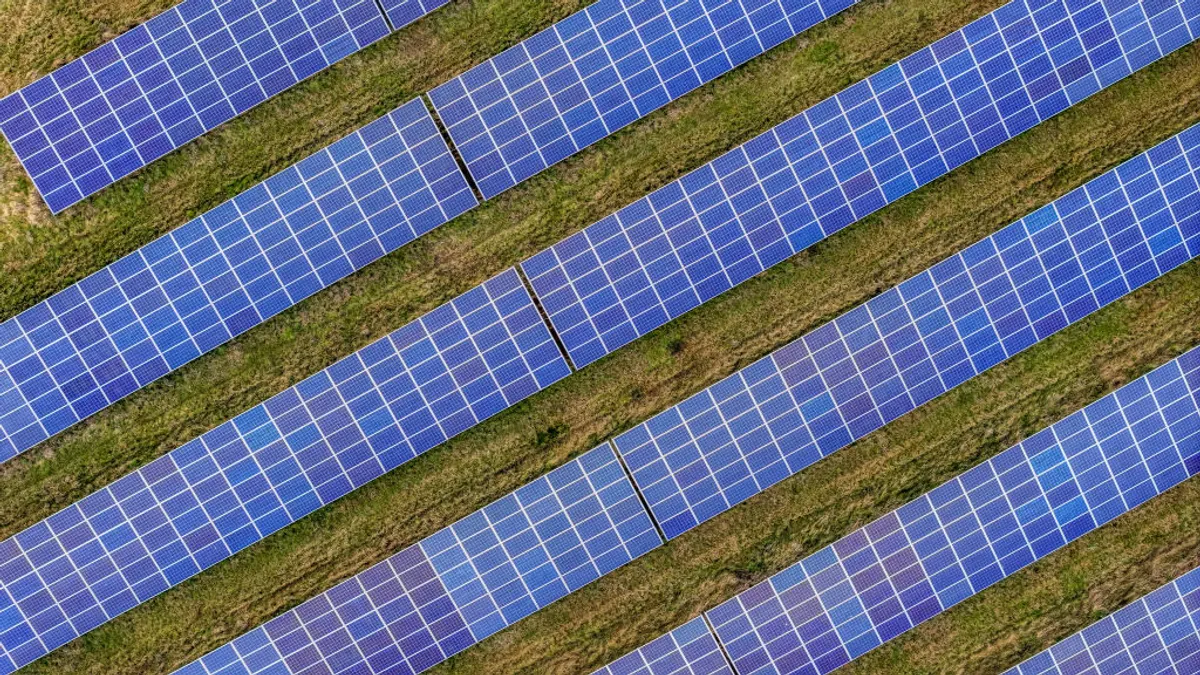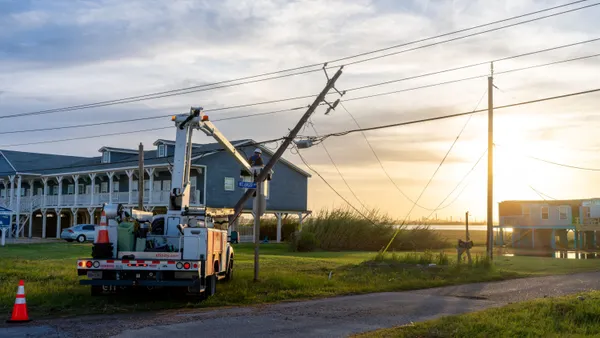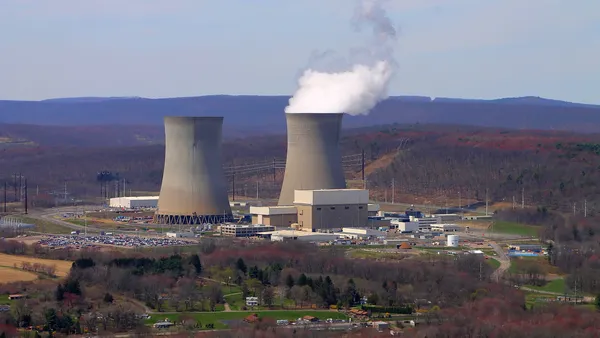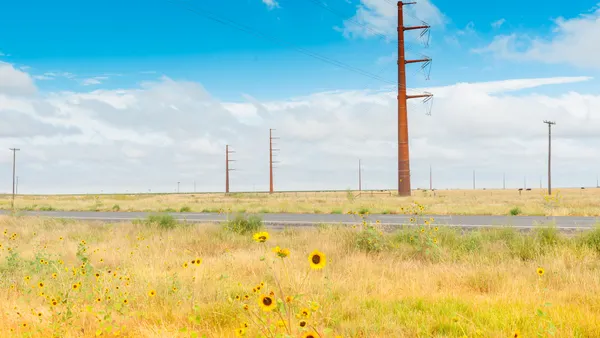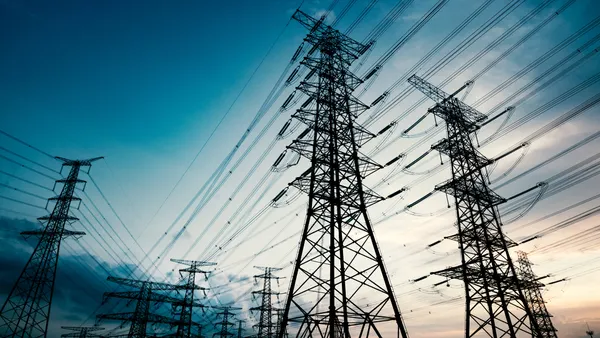Dive Brief:
- Newly-unsealed court documents allege Tesla CEO Elon Musk was aware that SolarCity was in financial distress but still pushed to acquire the company for $2.6 billion in 2016. The allegations are part of a shareholder lawsuit claiming Tesla overpaid for the solar installer.
- In 2015, SolarCity CEO Lyndon Rive told Elon Musk the company would need as much as $300 million to stay afloat, according to the filing. Rive, who has since left SolarCity, is Musk's cousin.
- Musk rolled out the Tesla solar roof to build support for the deal, but the product never materialized and the tiles shown at a company event to promote the product were non-operational. SolarCity has lost market share since the deal, and this summer Tesla "relaunched" the division with plans to lease traditional solar panels.
Dive Insight:
Musk showed off its non-operational solar tiles in October 2016 and in November shareholders approved the deal. The lawsuit paints a damning picture, with Musk pushing for the merger's completion despite claiming to have recused himself.
"Almost immediately after the acquisition closed, SolarCity’s auditors E&Y confirmed that SolarCity was, in fact, insolvent," the investor lawsuit claims.
According to the lawsuit, as part of the year-end audit process conducted in January 2017, the auditors discovered that the 2017 financial projections SolarCity provided to E&Y had not included two payments related to solar bonds, and were short of cash by $169 million.
Tesla counsel pressed to have the investor lawsuit dismissed, but the case has been granted class action status. A Tesla spokesperson has called the claims "false and misleading, as Tesla and SolarCity published all material information in its proxy and other public filings for all shareholders to consider before deciding on the transaction."
Musk was deposed in the case earlier this month.
When Tesla purchased SolarCity, the company was the leading solar installer in the country. Now, Tesla is looking for ways to reverse its declining market share.
Solar City installed 6.3% of the U.S. residential solar capacity in the first quarter of 2019 — falling into third place, behind Sunrun's 11% market share and Vivint Solar's 7.6% share, according to WoodMackenzie.




